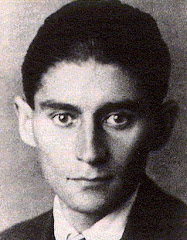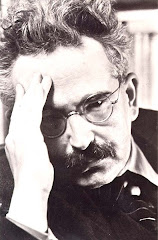--From Aristotle’s Poetics
Though Thucydides famously stated at the beginning of his History of the Peloponnesian War, “My work is not a piece of writing designed to meet the taste of an immediate public, but was done to last for ever,” (I.22) it is clear that in order for Thucydides’ work to have lasted and to have remained a possession for all time, it also had to please its audience. That Thucydides, despite his lambasting of romantic embellishments (I.21), could have produced something as dramatic and ahistorical as the Melian dialogue attests to what must have been his profound recognition that history is far more than simply a true account of the past. Indeed, if we are to understand what truth was for the Greeks, a Heideggerian scrutiny of their word for it, Aleitheia, will reveal it to mean un-concealment or un-forgetting. That the word is etymologically given only in negative terms, with an alpha-privative, demonstrates the Greek’s underlying view of the kinship between truth and memory. This view pervades the dialogues of Plato, especially Phaedo, Republic, and Phaedrus, where Socrates argues for the soul’s immortality on the very grounds that all knowledge is recollection (Anamnesis). But if history’s object is truth and truth’s source is memory, it becomes apparent why even someone as driven towards scientific objectivity as Thucydides could not have resisted dramatic interpolation and invention.
Yet the lack of reliable source-keeping in ancient times forced historians like Herodotus and Thucydides to write histories only of their recent times, histories of wars through which they had lived and in which they had fought. But this writing about a near-past coupled with the fact that the subject of that past was war, ensured that history would blur with epic.
But in any event, could Thucydides have claimed his book to have been a possession for all time if it hadn’t been of epic and tragic proportion? Assuredly not. For, so the argument seems to run in ancient historiography from Herodotus to Polybius, not everything that happened in the past is worthy of being called history. Only those events from which we can draw universal lessons are ultimately important. Herodotus does not write history to preserve the miniscule deeds of insignificant men from the blackening of time, but to preserve those belonging to great men, political leaders, emperors, generals, etc.
But in this way history and poetry converge. For Aristotle argues in Poetics that a tragedy must take as its subject a person of high birth and exalted stature. And Homer, in the Iliad and Odyssey, when not slandering the gods, sings almost exclusively about "the best of men." Both the ancient poets and the ancient historians sought to impart lessons to their audience, and both realized that the most effective way to do this was through dramatic art.
Although Aristotle distinguished between history and poetry, this distinction did not hold up for Herodotus and Thucydides. History was, of course, the study of what had happened, yet it was this very fact that also made it a study of what might be. The kind of plague which Thucydides describes could have just as easily been the subject matter for a Sophoclean play (while the plague of Thebes in Sophocles’ Oedipus Tyrannous could well have been a historical reality), yet the important thing is that it actually occurred, and that moreover, it actually occurred in the live memories of the Athenian people.
Even when Polybius strongly writes that history without the truth is but an idle tale (a sentence that resonates with Shakespeare’s admission that “Life is a tale told by an idiot signifying nothing”), it is important to remember that truth was a much more malleable concept for the Greeks, and one deeply tied to memory. Even Polybius, who himself attempted to write a universal history of epic proportions, consigned himself to focus on the Roman Empire, an empire that had altered his personal life by taking him away from his Greek homeland. And even Polybius could not help but invoke throughout his work the epic force, who later came to be a Roman deity, Fortune (Tyche).
History, as conceived by Herodotus, Thucydides, and Polybius, was at once the study of singulars (both Herodotus and Thucydides argue for the unprecedented nature of the wars on which they write, while Polybius emphasizes the unprecedented character of the Roman people, the unprecedented accomplishments of their constitution, and the unprecedented reach of their sphere of influence), yet it is also the study of universals (Herodotus tells stories of the great deeds of all men and shows hubris to be a condition that affects all leaders, Thucydides sees history as a possession for all time, and Polybius understands all world events to effect each other in an intricate nexus). This deep knowledge of history’s essence underscores why for all three, history could be at once theatrical, epic, tragic, and objective, disciplined, true.






No comments:
Post a Comment